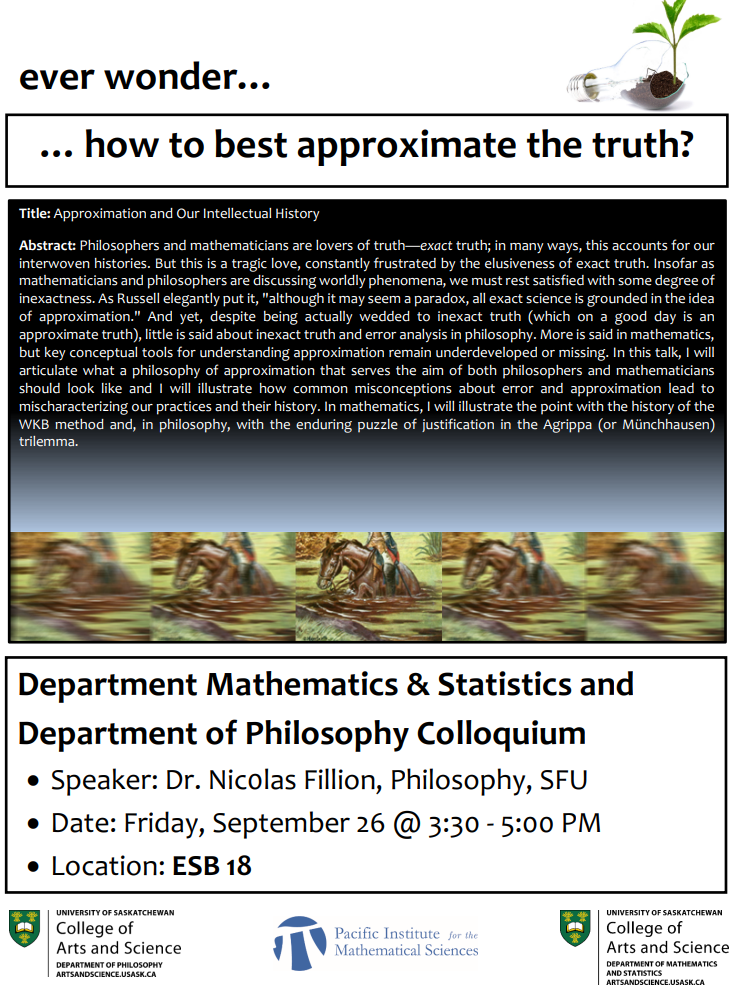
Approximation and Our Intellectual History
Philosophers and mathematicians are lovers of truth—exact truth
Dr. Nicolas Fillion
Department of Philosophy
Simon Fraser University
ESB 18
Philosophers and mathematicians are lovers of truth—exact truth; in many ways, this accounts for our interwoven histories. But this is a tragic love, constantly frustrated by the elusiveness of exact truth. Insofar as mathematicians and philosophers are discussing worldly phenomena, we must rest satisfied with some degree of inexactness. As Russell elegantly put it, "although it may seem a paradox, all exact science is grounded in the idea of approximation." And yet, despite being actually wedded to inexact truth (which on a good day is an approximate truth), little is said about inexact truth and error analysis in philosophy. More is said in mathematics, but key conceptual tools for understanding approximation remain underdeveloped or missing. In this talk, I will articulate what a philosophy of approximation that serves the aim of both philosophers and mathematicians should look like and I will illustrate how common misconceptions about error and approximation lead to mischaracterizing our practices and their history. In mathematics, I will illustrate the point with the history of the WKB method and, in philosophy, with the enduring puzzle of justification in the Agrippa (or Münchhausen) trilemma.